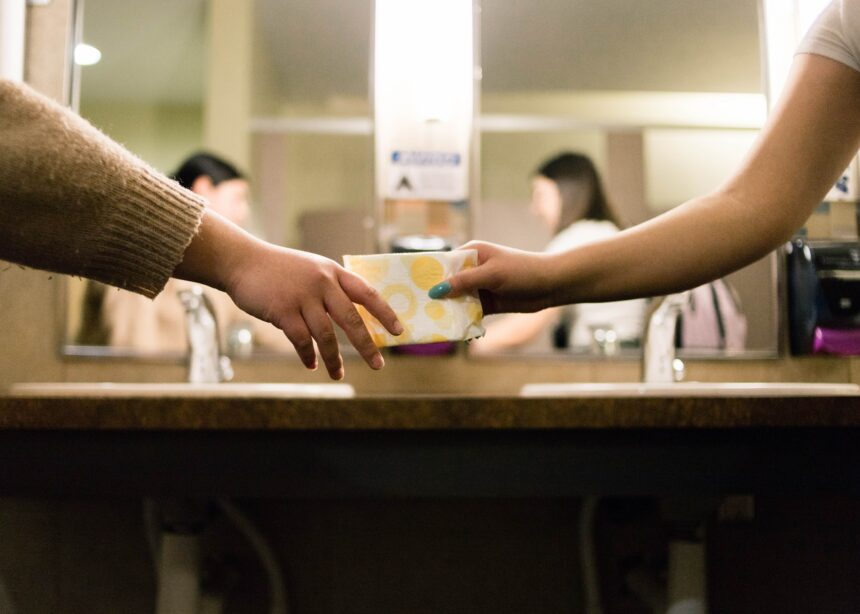Dear monthly bleeders, have you ever had the problem of getting your period unexpectedly, and you had no tampons or pads with you nor money to buy them? So, you had to improvise with UvA’s thin toilet paper that surprisingly ‘saved’ your day. This is a typical example of period poverty, but what is period poverty exactly, and how is the situation at UvA?
Period poverty affects around 500 million people in the whole world and refers to deficient access “to menstrual products, education, hygiene facilities, waste management, or a combination of these”. For instance, period poverty hinders people from “participat[ing] in all aspects of life,” such as going to university also, due to the impact that period poverty has on mental capacity.
When we take a look at UvA, the struggle becomes real, as student party 020 described at the beginning of their Period Poverty Survey and Petition: “[In the world] 14.2% of college-aged individuals experience period poverty. Consequently, this can negatively impact their education and cause unnecessary distress over something they cannot control.” A striking issue is that the university does not offer free menstrual products. Instead, you have to buy them at a machine, at the small kiosk, or make your way to the store (if you have enough money and time). But it does not have to be this way! For example, all universities across Scotland offer free menstrual products to their students. This change had a positive impact on the students regarding their mental health and well-being.
We have organisations at UvA advocating against period poverty like the CSR, 020, and ASVA. The CSR has put this issue on their agenda and discussed how the situation can be changed. In the meeting that we went to, no decision could be reached because, according to the last known information, the question of how to pay for menstrual products, instead of the students, could not be answered, according to youngscot.
UvA’s political party 020 has recently published a survey and petition with which they launch “the initiative to offer free sanitation products at UvA to ensure periods are something that never limits education.” Most importantly, as menstruation is still a taboo topic, they try to break the silence and stigmatisation around it.
Recently, a student initiative called Safe Cycle Action took on the task to combat period poverty. Furthermore, the student union ASVA already offers free menstrual products and distributes them. So, if they can do it, why not the UvA? We tried to contact the UvA––as well as the CSR and 020––to ask what they plan for the future to tackle period poverty, but unfortunately, we did not receive an answer. And our questions remain unresolved.

